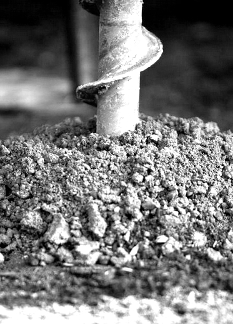Greens slam Hydro Tas links
 Hydro Tasmania's consulting business has been criticised for its actions in Africa.
Hydro Tasmania's consulting business has been criticised for its actions in Africa.
Reports say the company undertook work on a northern Ugandan hydropower project despite well-known community concerns, reports of corruption, technical issues, poor workmanship and at least one onsite fatality.
The Tasmanian Greens have gained access to emails, briefing reports and screening summaries that show the consulting business Entura deemed the project “high risk” at first, before downgrading the assessment to “medium”, while still acknowledging ongoing concerns with local community relations and environmental management.
Entura secured a contract from PowerChina Huadong to advise on the Karuma hydropower project in March 2017.
Entura effectively operated as a sub-contractor on the project, managing stakeholders, undertaking reviews and advising on international standards.
“The obvious red flag is that Hydro Tasmania identified levels of community protest and outrage, they identified human rights issues, and they identified impacts on communities,” Greens MP Dr Rosalie Woodruff said.
“They rated that as a high risk and they went ahead with the project nonetheless.”
Entura produced a “summary against sustainability code” document, listing numerous risks and how they could be mitigated.
Entura then downgraded the residual risk (after mitigation measures) to “medium”.
Even so, the ongoing human rights issues, impact on communities and level of community outrage was labelled “high risk”, even after mitigation.
“The most shocking thing is that Hydro appears to have done a number of assessments and went ahead regardless,” Dr Woodruff said.
“That sends a pretty strong signal to companies like PowerChina that regardless of what they do in countries, Entura is going to help them anyway.”
Entura says it screens all projects before signing and agreements, including evaluating deals against Hydro Tasmania's sustainability code.
“Since November 2016, Entura has used additional criteria in its sustainability screening process,” the statement said.
“We determined that while Entura's involvement on the Karuma project was minor, within the limitations of our role, we had a positive influence on the project's overall design, safety and sustainability.”
Dr Woodruff said a public Tasmanian business should not be involved in the Karuma project.
“Hydro Tasmania might like to argue to themselves that they're doing the Ugandan people a favour by being involved in improving the design for this dam,” she said.
“But fundamentally, if it's a dam that's based on human rights abuses, legal fights with communities where land has been taken from them, and environmental issues, this is not something that Tasmanian people want their public money put towards.”







 Print
Print